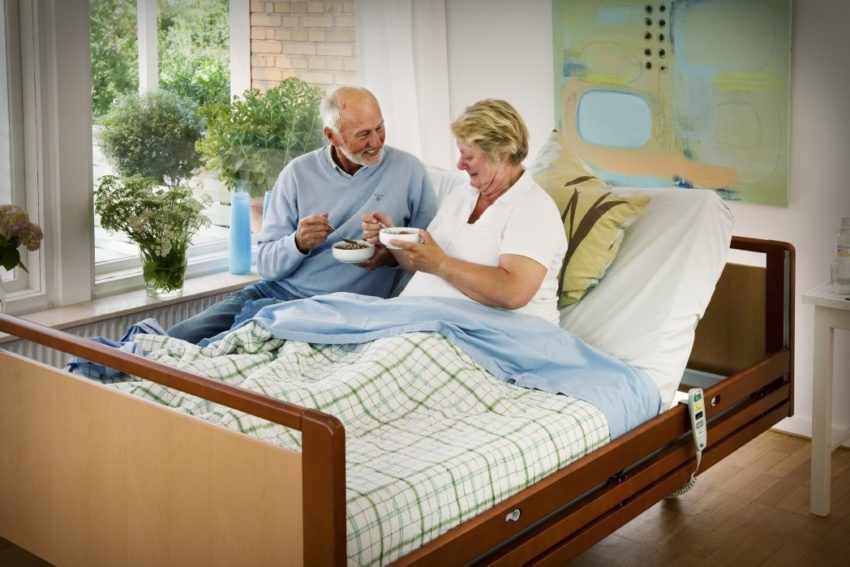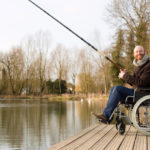Disabled Care – How to Help Others Help You

Disabled care may seem both daunting and straightforward. Quite paradoxically, it often is. In this short guide, we’ll discuss ways to bias this process towards ‘straightforward’, easy and safe. For everyone involved.
Before we dive in the details, one important – even crucial – thing to understand is that, while caring for a person with disability is both daunting and straightforward, disabled care is not both a passive and active process. If you’re a person with a disability in need of care from a professional or your loved one, that doesn’t mean you’re a passive object in the process. It’s your responsibility to participate and make this everyday process a better experience for everyone.
Let’s explore how by going through a typical day of a person requiring care.
It all begins in the morning
First things first – the morning routine. For some, besides getting dressed, this includes at least a part of their daily hygienic needs. If you can do this in your bed, that’s great. However, avoiding the toilet and/or bathroom altogether is not an option – not a healthy one, at least. Therefore, it’s not unwise to incorporate as much of personal hygiene and bathing/toileting needs in your morning routine as possible. It’s efficient timewise and will spare your caregivers unnecessary transfers.
Speaking of transfers, they are your first chance to be active in helping others help you, not just by adopting a timesaving routine with as few transfers as possible, but also by making those transfers effortless. That’s where lifters come in. I know some prefer being carried by hand, but that’s not safe for you, and it’s not healthy for people carrying you. So, consult a medical professional about getting a lifter and help those around you.
While we’re at it, there’s one more piece of technology that’s really helpful. If your bathing routine involves getting into an actual bath, consider getting a bath lift. Not only will it make bathing less stressful for you and your caregivers if you do get in the bath, but it will also possibly make getting in the bath doable, if it was previously not an option for you.
Similarly, most persons with disabilities will need help with their toileting needs. This can also include management of incontinence. Whatever the case may be, there’s a way to make it easier. For instance, a simple toilet frame will do wonders here.
Surfing through the day
So you’re clean and dressed, ready for your day. Depending on your lifestyle, this may involve any number of activities, so we’ll focus on those most common and typical for most of us. For example, we all have to eat. For your caregivers, this will probably mean getting your meals ready, but it may also mean they need to help you with eating and drinking. Either way, it would be really useful if you could help them prepare an adequate meal (maybe you need to follow a specific diet), as well as feed you properly – maybe you can’t take big bites, or you need to drink with a straw. Your caregivers need to know this, however insignificant it may seem.
Most other activities will depend on your lifestyle. Help yourself and others by choosing a wheelchair that fits that lifestyle and meets your needs.
As evening turns to night
End of the day doesn’t mean the end of disabled care, as we all know. Changing clothes and transferring back to bed is only the beginning. Caregiver’s lasting nightly mission is to keep you comfortable. In fact, comfortable here also means healthy, as laying in bed uncomfortably and without frequent position changes could mean bedsores, respiratory issues, and various other problems.
Of course, there’s a way to help your caregivers during the night, too. Simply put, choose a proper bed and mattress. Both will help you sleep healthy and comfortably, as well as make your caregiver’s nightly mission easier.
Is that all?
Well, yes and no. Think of this as a rough guideline, but you can expand on this guideline by asking yourself a few simple questions once in a while. Most importantly, ask yourself if your day was as pleasant as it can be. Were all your needs met? Were they met adequately? Was all this easy enough for your caregivers? What can you do to make it better for yourself and easier for those helping you? Is there an aid that can be useful?
Ultimately, it’s your day and your needs are your own. Just try to make it easy and safe for you, your loved ones, and your caregivers.






